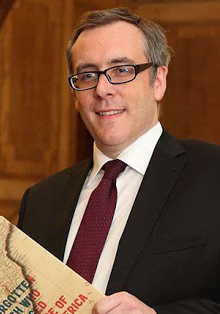Ana Collado
PhD in Information Society
The change of decade has been not only a health shock, but also an economic and even a systemic one, due to the additional difficulties faced by Latin American countries to face all the challenges brought to light by the global pandemic.
In this context, Ecuador has inaugurated an intense electoral calendar in the region with its Presidential Elections, the first round of which was held on February 7. And last Sunday, after two weeks of complex counting, the National Electoral Council (CNE) has proclaimed the passage to the second round of the pro-Correista Andrés Arauz and the liberal Guillermo Lasso.
As an International Observer invited by the CNE, I lived the first round together with the 13 million Ecuadorians who had to choose among 17 presidential candidates, in a climate of uncertainty, fear and polarization, also fed by the groups of the world left that from the beginning tried to delegitimize any result that was not the acclamation of Arauz as president in the first round. Undoubtedly, a disproportionate and unfounded expectation in view of the final result (since he barely received a third of the votes in the first round), but used by other observers from the Podemos and Chavismo orbit to stir up the ghost of electoral fraud and justify, perhaps, the difference between the real support for Arauz, disciple and follower of Correa, and his illusion of hegemony and social roller.
I went there with the responsibility of a convinced democrat and I witnessed the use of this institution (electoral observation) by the professional observers of the political and “oenegro” left for their own benefit. With name and surname, I am talking about Juan Carlos Monedero, who violated in several occasions the electoral regulations of Ecuador (the Code of Democracy), whose article 180 clearly states that “The electoral observers, at the moment of their accreditation, must state their commitment to act with objectivity, impartiality and transparency” (…) “They cannot under any circumstances carry out political proselytism of any kind, or demonstrate in favor of associations that have political purposes, groups of voters, groups of citizens or any candidate”. This even led the vice-president of the National Electoral Council, Enrique Pita, to request the revocation of the electoral observer status of the Spanish MEP Manu Pineda and the aforementioned Juan Carlos Monedero.
But beyond these sad anecdotes, the summary of what I observed from objectivity and neutrality is that the Ecuadorian institutions have done everything in their power to guarantee the democratic development of the process to promote participation and overcome the fears inherent to the health crisis. Thus, in view of the tight result, the CNE sponsored a meeting between the two candidates who disputed the second place and the passage to the second round, so that Yaku and Lasso agreed to follow the meticulous recount and accept the result with transparency and rigor, according to Ecuadorian regulations, as it finally happened.
Again, the Unidas Podemos left tried to set itself up as spokesperson of the international electoral observation missions (by what right do you represent me?!?), discrediting these steps of the CNE and the dialogue between the candidates in contest, decontextualizing their legal justification and omitting precepts of the Ecuadorian legal system on which such decisions were based (read, beyond art. 137 that they mention mutilated, art. 141 of the Code of Democracy, which expressly indicates that “The Council may order that the verifications or verifications it deems necessary be carried out”).
Next April 11, the second round will take place, which is presented as a clear plebiscite on the Correaism from which the country has been timidly emerging during the term of office that has just ended. Ecuador has in its hands the consolidation of a change that began on February 7, with the dialogue and agreement of all the alternative forces (which had the support of two thirds of the voters in the first round), now led by Guillermo Lasso; and also the possibility of leading in the region a new direction away from the populisms that exhaust democracies.
© Fundación FAES /All rights reserved






